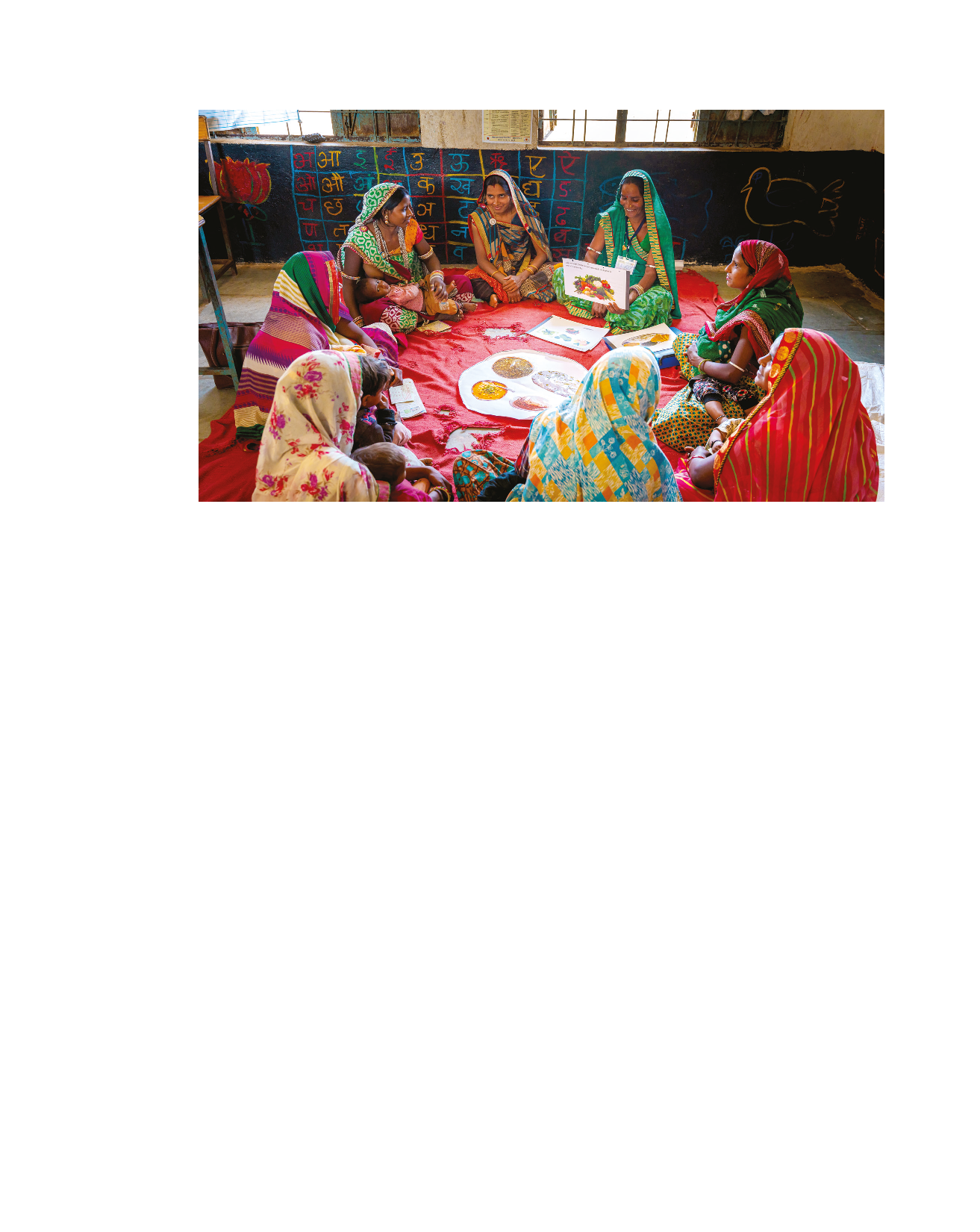
Education
213
e School Management Committee deliberates a healthier future for the children through nutritious midday meals
students and teachers has risen and children
are engaged in joyful learning processes,
building capabilities in early Foundational
Literacy and Numeracy (FLN). e
impact of this work goes beyond numbers.
School management committee members,
parents, and community leaders have all
begun actively participating and working
collaboratively to improve the functioning of
schools.
One of the successes of TRI is the
establishment of the Education Sector
Council, a robust platform made up of
renowned education organizations to develop
effective tools and process protocols and
ensure a comprehensive approach towards
rural education.
TRI employs a holistic strategy which
promotes community-based models, especially
women’s collectives, where women are the
powerful agents of educational change, taking
collective responsibility for education in the
village and addressing issues of discrimination
and segregation to create cohesive education
communities. Respecting local tribal culture
and customs and integrating local languages
into programmes, as well as fostering
technology-aided learning and joyful classroom
ideologies in its interventions, TRI comes
closer to its goal of empowering rural children
with 21st century skills including creativity,
entrepreneurial mindsets and adaptability, so
that these children can become changemakers in
their communities and beyond.
HCLTech Grant Project Title:
Ensuring
Positive Transformation in the Primary
Education System of Stranded India
Beneficiaries:
28000 students, 25000
mothers, 1000 teachers, 2100 SMC, 300
PRIs, 1500 Learning Center anchors, 1500
education change vectors, 42 local education
functionaries
Location:
700 villages of 6 districts in
Madhya Pradesh and Jharkhand